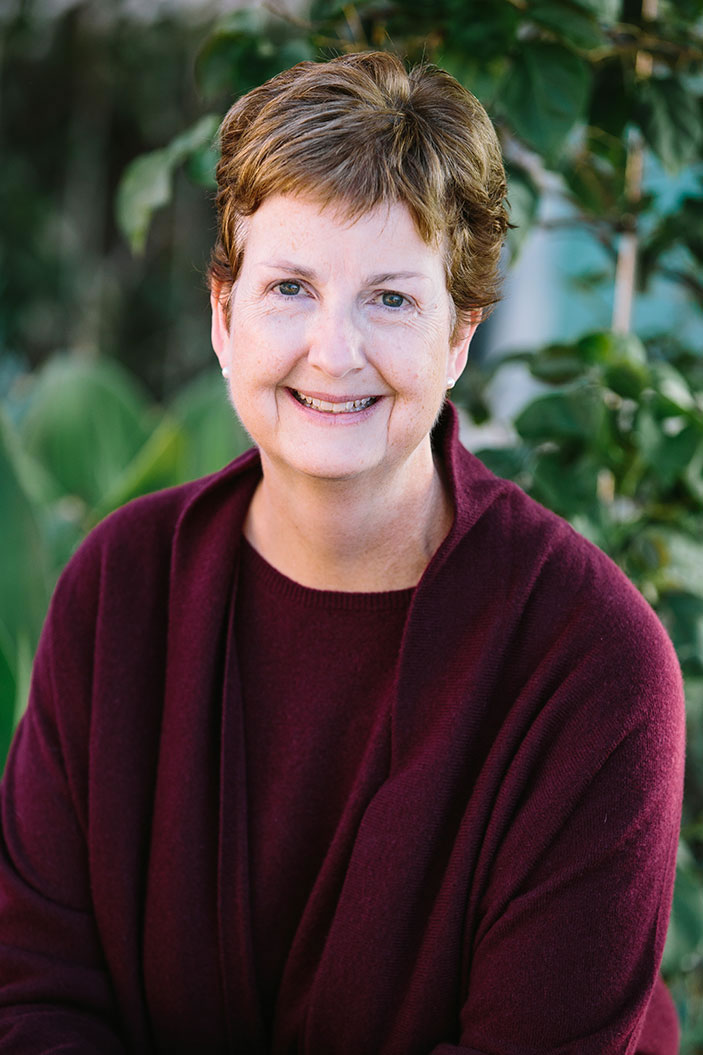Faculty
Work to Do
Lisa Sullivan begins her tenure as dean of the faculty
Veteran Faculty Member Lisa Sullivan says her July 1 appointment to the role of dean of the faculty seems like a natural extension of the work she’s done during her career. Now in her 28th year at Harvey Mudd, Sullivan has become increasingly interested in opportunities to bring her research interests in work satisfaction into practice (a labor historian, her specialty is the history of the concept of work). The work she’s done administering a Mellon grant directed toward faculty career satisfaction, chairing the Department of Humanities, Social Sciences, and the Arts (2006–2009; 2016–2017), and chairing the faculty (2013–2016) have all pointed toward her current role as dean of the faculty. She’s also served as Associate Dean of Academic Affairs (1999–2003) and is the Willard W. Keith Jr. Fellow in the Humanities. “I enjoy the opportunity to help individuals and organizations find their way to better situations and more meaningful work, and I like problem solving,” she says.
Sullivan will be putting her talents to use as she oversees the academic program, supports the faculty in their teaching and research, and explores new teaching and learning initiatives. Harvey Mudd College Magazine spoke with Sullivan about her approach to her new job and her thoughts on the Core Curriculum review process.
With institutional transparency being a high priority, how do you plan to communicate the work of your office to various constituencies?
It’s early still, but I’ve had the opportunity to meet with groups of students already, and I have an open door policy, as Jeff [Groves] did. I am partnering with some key groups who are working with and through the dean’s office, including the Core Review Planning Team, and helping to make sure that they have the resources to be very transparent in sharing the data they’ve collected. The CRPT has been a model in this regard.
As the College supports an increasingly diverse student body, what does this mean for the faculty?
The increasing diversity of our community along many axes—among students, faculty and staff—is incredibly gratifying. For faculty, this presents the amazing opportunity and responsibility of teaching classes that look increasingly like the world around us. Making our disciplines compelling to this audience and helping our students bring their talents to fruition insures that Harvey Mudd is attentive to the impact of its work on society.
I think it’s a huge boon for us as a community to be more diverse. We’re not where we need to be yet, but we’re at a very different place than we were when I was hired. For the faculty, I think we increasingly walk into classrooms and see something that’s getting closer to the world around us. And the more of the world we have in our classrooms, the more we’re going to be able to do the things that the mission obliges us to do as an institution: to raise up these students to go out into their communities and the world to solve problems. I think that that’s just hugely gratifying to the faculty. The challenge is figuring out how to do it well.
You are the first woman in the history of the College to hold the dean of the faculty position. What does this mean for you?
I was probably the fourth or fifth woman on the faculty. When I see how the campus has changed— the number of women we have in our student body, in our faculty, in our leadership positions—every place you turn there are women now. I think this testifies to core values of the College, and that means a lot to me.
What are your hopes for the HMC Core Curriculum review process?
I think we as a community are more open to the idea of a profound transformation of the Core than at any time in my almost 30 years at the College. I think that has to do with the events of last spring, which I think in good ways, made us think anew about being accountable to our students.
I hope that the review gives us an opportunity to think globally and carefully about the overall role that we want the Core to play in the academic program. I think we’re poised to do that, and I would not want to pre-judge the outcomes. We have an amazing team in our planning committee, and I think our previous commitment to external reviewers, to bring people in from the outside and take a look, is fortuitous. It’s not just those of us who live inside trying to imagine what could be better, but we acknowledge that outside eyes are important.
All of these things make me really optimistic that we will come to a limited set of really vibrant goals for the Core.
Higher education is always changing. We’re always in a moment where we have to decide what of the things that are very valuable to us must we absolutely have in the future and which things we had in the past that we can we give up and still preserve what’s most important.
More on Dean Sullivan
First job: Obituary and society page writer for a small newspaper
Glad I did it but wouldn’t do it again: White water rafting
Favorite food: Home-made brown bread and butter
One way I stay organized: Post-it notes, still, always
What I’m reading: Emily Wilson’s new translation of The Odyssey
App I can’t do without: Funnel
Best advice I’ve received: “Own your mistakes.”
